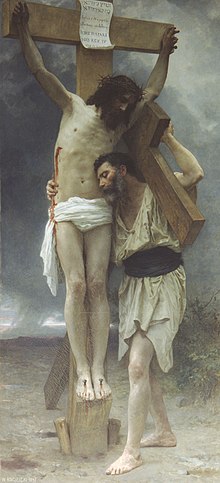Charles Fletcher Dole
Jump to navigation
Jump to search

Charles Fletcher Dole (1845, Brewer, Maine – 1927, Hawaii) was an influential Unitarian minister, speaker, and writer in Jamaica Plain, Boston, Massachusetts, and Chairman of the Association to Abolish War.
Quotes[edit]
- It is absurd to suppose, if this is God’s world, that men must always be selfish barbarians.'
- The Coming People (1897).
- When the first just and friendly man appeared on the earth, from that day a fatal Waterloo was visible for all the men of pride and fraud and blood.
- The Coming People (1897).
- The truly civilized man has no enemies.
- The Smoke and the Flame: A Study in the Development of Religion (1902).
- Democracy is on trial in the world, on a more colossal scale than ever before.
- The Spirit of Democracy (1906).
- It is a world of startling possibilities.
- The Hope of Immortality (Ingersoll Lecture, 1906).
- Golden hours of vision come to us in this present life, when we are at our best, and our faculties work together in harmony.
- The Hope of Immortality (Ingersoll Lecture, 1906).
- Good Will is the mightiest practical force in the universe.
- Cleveland Address, reported in Bartlett's Familiar Quotations, 10th ed. 1919.
- The Golden Rule works like gravitation.
- Cleveland Address, reported in Bartlett's Familiar Quotations, 10th ed. 1919.
The Theology of Civilization (May 1899)[edit]
- The Theology of Civilization, read before the Ministerial Conference (May 1899)
- The conception of life as constructive rather than antagonistic effort finds beautiful illustration in every approach that we make toward true civilization. You measure the quality and the value of the civilization of individuals or peoples, not by the houses which they live in or the clothes which they wear, but by the width and power of their sympathy.
- The truth is, that what men demand in life, and miss if they do not find it, is not antagonism and warfare, but struggle, effort, cost, strenuousness. It is not hate and enmity that have ennobled warfare. It is not killing that has made the life of the soldier fruitful in moral lessons. It is the nerve, endurance, hardihood, and courage that we love to see. Of these superb qualities there is likely to be a demand to the end of the human course; for it is out of these things that life is forever being wrought. The grown man conceives the universe, not as two impossible opposites in conflict, but as one harmonious structure; out of his soul, brought into unison with God, all hate has vanished.
- Is it not plain that the law of good will has a universal application? There is no event, no act, no word, no supreme crisis of life in which man may let the good will go, and turn on the forces of ill will, egotism, and selfishness. Letting the good will go out of him, he lapses straightway into the child or the savage. Keeping the flow of the serene good will in his soul, he walks the earth, fearless, erect, with God’s sunshine on his face. To live thus is the essence of civilization; the individual and the social welfare are thus secured and harmonized. To live thus is practical religion; the more thoroughly we try, test, and experience it, the more completely it will be found to grow out of, and to illustrate, a Theology, that is, a divine plan of the universe. This Theology matches the needs of civilized men in a civilized world.
